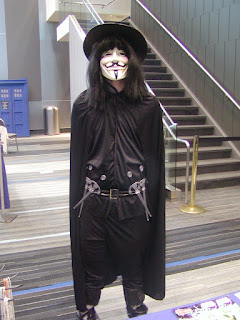As many of you already know, this is a great time for fans of science-fiction, horror and fantasy TV shows. Doctor Who, Fringe, the U.K. Being Human, Futurama, True Blood, American Horror Story, Game of Thrones and others give us quality entertainment on a regular basis, so with Terra Nova having such a huge production budget, it's not too much to ask for something along these lines, right?
Terra Nova works with the premise that sometime in the 22nd century, when the Earth is polluted beyond repair by us environmentally-uncaring humans, a time tunnel is discovered into the distant past. Specifically, 85 million years ago, the peak of the time of the dinosaurs, but the tunnel is a one-way passage -- once you go back in time, there’s no coming back. Human society decides to “start over” by sending groups of colonists selected as the best, brightest and presumably most useful, to create a brand-new society in this prehistoric age.
Now, that's not a bad premise, unless you start thinking about things like why these brilliant 22nd century scientists can invent a way to move large groups of people, machines and supplies across 85 million years but can't invent ways to clean up the pollluted atmosphere in their own time. Or why having more than two kids is still considered a crime in the overpopulated 2149 when groups of humans are bailing on 2149 for the distant past. Okay, okay, maybe things like this don't matter, especially considering this is supposed to be a show about humans interacting with dinosaurs.
Except they don't, not often anyway. Most of the time, the focus is on members of the Shannon family and the most recently-aired episode, "The Runaway," didn't feature dinosaurs in the story until forty-five minutes into the hour. Mostly, the episode was attempting to slowly build up tension between the Terra Nova camp and the Sixers, the mysterious group of humans living on their own that in no way whatsoever resemble The Others from Lost. When lead character Jim Shannon, played by Jason O'Mara, is taken captive by Sixer leader Mira, she informs him that Terra Nova has an oh-so-secret purpose beyond what he's been told by Terra Nova leader Commander Nathaniel Taylor. When Jim asks Mira what that purpose is, she merely replies "You'll see" in a smirky way that makes you think showrunner Brannon Braga hasn't actually thought up the real purpose yet or has watched too many episodes of Lost and the recent Battlestar Galactica and now expects you to watch Terra Nova for a few more seasons before getting any real answers.
If it sounds like the writing on this series is forced and by the numbers, that's because it is. There's little sense of actual drama here, only that you're supposed to care about certain characters because you're supposed to care about them. And when Braga starts recycling story ideas like the uber-cheesy "amnesia virus" that makes characters forget just enough to cause conflict with no lasting consequences, you have to wonder if you're watching a show called Terra Nova or Braga's previous series Star Trek: Voyager.
So why is Terra Nova's poor creative execution so fun? Anyone who's watched an episode of Mystery Science Theater 3000 could tell you that cheesy movies and TV shows are made more entertaining when you make fun of them while watching. My personal preference for MST3K-style Terra Nova smacktalk is Twitter, where I'm able to post my thoughts and reactions to whatever nonsense is going on (or not going on) using the searchable hashtag #TerraNova. If you check it out, you'll see I'm not the only one who does engages in this bit of schadenfreude, which may help explain why the show's ratings have only gone down 0.3 points since the two-hour pilot aired a month ago.
Or maybe Terra Nova is far better than I think it is and I'm just being excessively hard on a series that hasn't yet finished its 13-episode first season. Check it out and decide for yourselves if you haven't already, but in the meantime, I'll be waiting for you on Twitter...






















